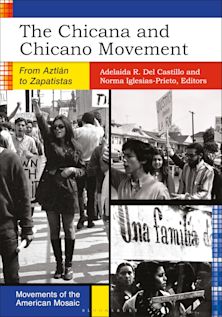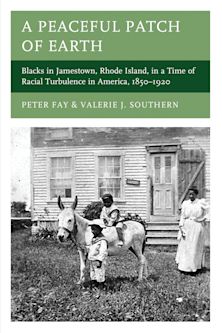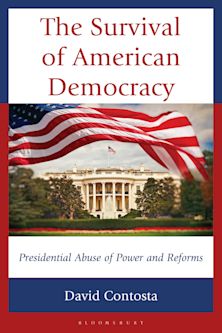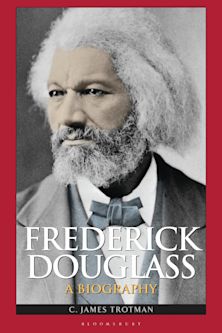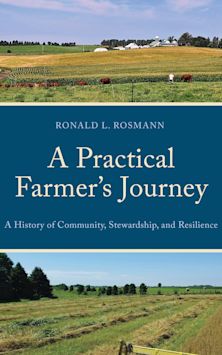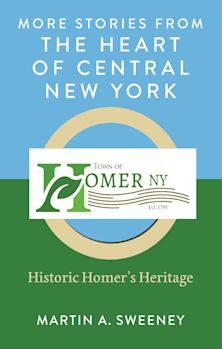- Home
- ACADEMIC
- History
- United States History
- African Americans, Death, and the New Birth of Freedom
African Americans, Death, and the New Birth of Freedom
Dying Free during the Civil War and Reconstruction
African Americans, Death, and the New Birth of Freedom
Dying Free during the Civil War and Reconstruction
You must sign in to add this item to your wishlist. Please sign in or create an account
Description
This innovative book examines how African Americans in the South made sense of the devastating loss of life unleashed by the Civil War and emancipation. During and after the war, African Americans died in vast numbers from battle, disease, and racial violence. While freedom was a momentous event for the formerly enslaved, it was also deadly. Through an investigation into how African Americans reacted to and coped with the passing away of loved ones and community members, Ashley Towle argues that freedpeople gave credence to their free status through their experiences with mortality. African Americans harnessed the power of death in a variety of arenas, including within the walls of national and private civilian cemeteries, in applications for widows’ pensions, in the pulpits of black churches, around séance tables, on the witness stand at congressional hearings, and in the columns of African American newspapers. In the process of mourning the demise of kith and kin, black people reconstituted their families, forged communal bonds, and staked claims to citizenship, civil rights, and racial justice from the federal government. In a society upended by civil war and emancipation, death was political.
Table of Contents
Chapter 1 “Let's Go to Buryin'”: African American Civilian Funerals and Cemeteries in Freedom
Chapter 2 “To Repose with Their Comrades”: African Americans and the Creation of National Cemeteries
Chapter 3 “The Widows and Families of the Heroic Dead”: African American Kinship and Domestic Economy
Chapter 4 “The Invisible Army”: African American Religious Life and Death
Chapter 5 “We Are Killed All the Day Long”: Testifying and Writing About Death
Conclusion “In the Cold Valley and Shadow of the South Land”
Bibliography
About the Author
Product details
| Published | Nov 22 2022 |
|---|---|
| Format | Ebook (Epub & Mobi) |
| Edition | 1st |
| Extent | 222 |
| ISBN | 9781666905724 |
| Imprint | Lexington Books |
| Illustrations | 7 b/w photos; |
| Series | New Studies in Southern History |
| Publisher | Bloomsbury Publishing |
About the contributors
Reviews
-
This well-researched book bridges the scholarship on the cultural history of death and historians' work on African Americans' experiences during emancipation and Reconstruction. Between epidemics in refugee camps and the one-fifth of Black soldiers who perished during the Civil War, as well as the racial violence that erupted across the South during Reconstruction, many Black southerners lost their lives. Ashley Towle explores how African American communities both made sense of these deaths and invoked the memory of the dead to sustain their fight for civil rights and racial justice... In both bringing the concept of mortuary politics to bear on Black southerners' experiences in the years after the Civil War and in tracing how communities made Black deaths matter, Towle makes a significant contribution. Scholars of Reconstruction and emancipation, as well as students and history professionals working with historic cemeteries, will find much of interest here.
Journal of Southern History
-
With this book, Ashley Towe makes an important contribution to African American history during the Civil War era. Towle reveals the ways in which death provided African Americans with a means for cultivating a culture of racial justice as they combated inequality. In so doing, she highlights the human agency African Americans asserted in the context of both the experience of mourning and post-emancipation racial violence.
Despite the thorough research conducted by Towle, her writing tends to be overly repetitive. This critique notwithstanding, her book is an essential read for anyone interested in African American history during the Civil War and Reconstruction.Civil War Monitor
-
This is a fascinating study of how African Americans made meaning of death in freedom. The author deploys death as an analytical tool through which to view shifting power relations between whites and the formerly enslaved in the uncertain and inchoate state of emancipation. As death abounded during the Civil War and through Reconstruction, African Americans could have easily fixed on the destructive aspect of death and devolved into despair. Instead we see how death could be “generative” and spark hope. In the author’s hands, and building on the path breaking work of Vincent Brown and his conception of “mortuary politics,” death is reworked and re purposed for political agendas. It is a compelling argument, full of great insights and stories that need to see the light of day.
Diane Miller Sommerville, Binghamton University
-
Ashley Towle’s book is a beautifully rendered and deeply researched excursion into the paradoxical danse macabre constituting African American engagement with death. It explores how “mortuary politics” shaped the actions of African Americans as they carved out their own burial places under the noses of their enslavers, as they fought to end slavery in battle, as they labored—quite literally—to intern the dead in national cemeteries, as freedwomen petitioned for their pension rights as widows of veterans, as they created syncretistic religious communities that nourished political will, and as they testified before Congress to say the names of the victims of racial terror killings during Reconstruction. Towle is a sensitive and nimble guide whose use of primary sources is exceptional and whose command of the literature on American slavery, the Civil War, and Reconstruction is spot on. This is a moving and humane book that recognizes how African Americans might deploy death as an instrument of liberation, while also acknowledging the sheer human toll and brutal inheritance of enslavement. The history drawn in this book is pentimento for the present.
Mark S. Schantz, Birmingham-Southern College

ONLINE RESOURCES
Bloomsbury Collections
This book is available on Bloomsbury Collections where your library has access.














